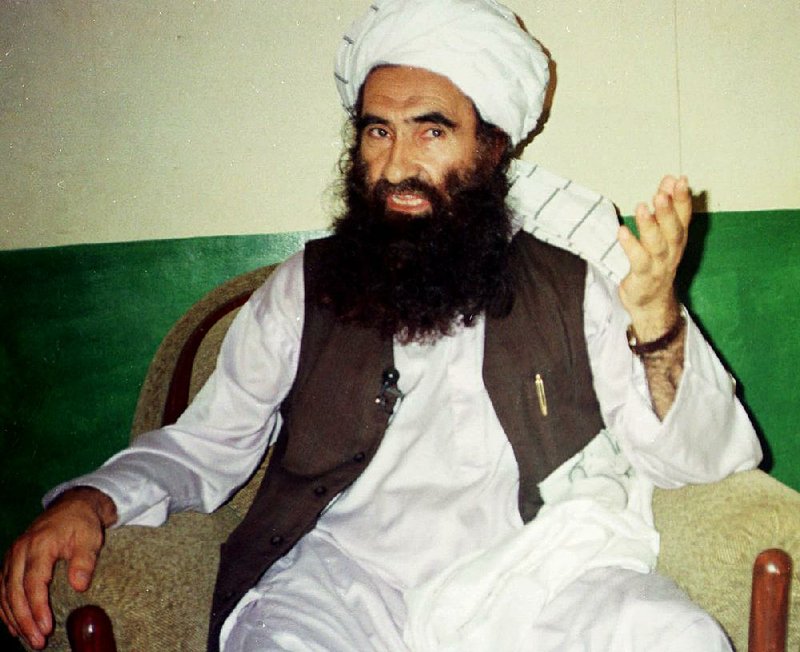KABUL, Afghanistan -- A top leader of the Taliban, once an ally of the United States and later one of its fiercest opponents in Afghanistan, has died, the Taliban announced Tuesday.
The statement said that Mawlavi Jalaluddin Haqqani, leader of one of the most effective militant networks in Afghanistan, "passed away after a long battle with illness." It did not give an exact time or place of death.
Haqqani "was ill and bedridden for the past several years," the statement said. His sons long ago took over the day-to-day running of the network and, at a time of increased Taliban attacks on the government, his death is expected to have little impact.
Haqqani, once hailed as a freedom fighter by U.S. President Ronald Reagan for opposing the Soviet Union's presence in Afghanistan during the Cold War, had been paralyzed for the past 10 years, Taliban spokesman Zabihullah Mujahed said in a telephone interview. Reports of his death were widespread in 2015, and he had not been heard from in several years.
One of the most resilient of Afghanistan's insurgents, Haqqani joined the Taliban when they overran Kabul in September 1996.
When U.S.-led forces overthrew the Taliban in 2001, he put his considerable military experience to fighting the Americans.
Hailing from a powerful Pashtun tribe in eastern Afghanistan, Haqqani had historical ties with some of the rich Arab nations and Pakistan, including its intelligence service. He set up his own front in the region and called it the Haqqani Network, even while still considering himself a member of the Taliban.
The United States declared the Haqqani Network a terrorist organization in 2012, and it has been one of the fiercest opponents of U.S. and NATO troops in Afghanistan.
The network launched several high profile attacks against U.S. and Afghan troops. Now run by one of his sons, Sirajuddin Haqqani, it also has been behind a number of abductions of foreign nationals in Afghanistan.
Haqqani has lost a wife, four of his sons and several other family members in various U.S. airstrikes and attacks in Afghanistan and Pakistan over the years.
One of his sons has been languishing for the past several years in an Afghan jail with a death sentence. The government, however, has reportedly hesitated to execute him because the network since 2016 has held captive two instructors who taught at American University in Kabul; one of them is an American citizen.
In its statement, the Taliban said Haqqani was one of the great figures of the movement that kept it united through the years.
"The actions and exploits of Haqqani Sahib and his untiring efforts to keep the Islamic Emirate [Taliban] united in the face of American invasion are golden chapters of history which future Islamic generations shall forever be proud of," it said.
"It makes me sad that he is no longer among us," Fazlur Rehman Khalil, co-founder of the outlawed Harakat-ul Mujahedeen, said Tuesday. Khalil lives freely on the outskirts of the Pakistani capital of Islamabad, currently promoting a fatwa, or religious edict, banning militant violence in Pakistan.
After his death was announced, the Haqqani family released a statement that said security issues prevented the holding of communal prayers for him and instead urged his followers to gather in mosques and "jihadi" centers around the country and offer prayers in his name.
Information for this article was contributed by Sayed Salahuddin of The Washington Post; and by Kathy Gannon, Amir Shah, Munir Ahmed and Riaz Khan of The Associated Press.
A Section on 09/05/2018
